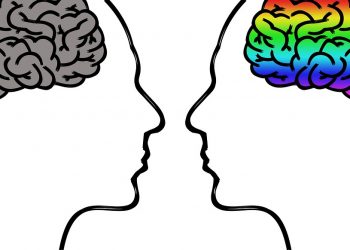Avoiding caffeine can transform your sleep quality in ways you might not expect. If you’re craving those restful nights and energized mornings, let’s dive into the seven surprising benefits of cutting out caffeine.
Sleep is not just a luxury; it’s a necessity. Quality sleep supports everything from your mood to your metabolism. Yet, many people overlook how caffeine—found in coffee, tea, sodas, and even chocolate—can sabotage their sleep. Let’s explore how steering clear of this stimulant can lead to deeper, more restorative slumber.
Contents
Understanding Caffeine and Its Impact
Caffeine is a central nervous system stimulant that can disrupt your natural sleep cycle. When consumed, it can stay in your system for hours, making it difficult to unwind at night. Understanding this is crucial. If you’re serious about improving your sleep, you need to recognize how much of this stealthy substance you consume daily.
Why Sleep Matters
Quality sleep is essential for your overall health. It affects your brain function, emotional well-being, and even your physical health. Poor sleep can lead to weight gain, anxiety, and chronic health issues. So, why not take the steps to improve it?
1. Enhanced Sleep Onset
One of the first surprising benefits you’ll notice when avoiding caffeine is how quickly you fall asleep. Studies show that caffeine can delay sleep onset by up to 40 minutes. By eliminating caffeine, you allow your body to transition into sleep mode more naturally.
Imagine lying down and feeling your body relax instead of tossing and turning.
2. Deeper Sleep Stages
Caffeine interferes with your sleep architecture, particularly the crucial deep sleep stages. When you cut it out, your body can enter these valuable stages more efficiently. Deep sleep is the stage where your body repairs itself, consolidates memories, and rejuvenates your mind.
A few tips to enhance deep sleep:
- Maintain a consistent sleep schedule.
- Create a calming bedtime routine.
- Keep your sleep environment dark and cool.
3. Better Sleep Quality
Quality trumps quantity when it comes to sleep. You could sleep for eight hours but still feel tired if that sleep isn’t restorative. Avoiding caffeine can lead to more efficient sleep cycles, improving your overall sleep quality.
A study published in the Journal of Clinical Sleep Medicine found that those who abstain from caffeine experience fewer sleep disturbances. Your body will thank you for this!
4. Improved Mood and Reduced Anxiety
Caffeine isn’t just a stimulant; it can also spike your anxiety levels. By cutting it out, you may find that your mood stabilizes, leading to a more peaceful night’s sleep.
Consider these emotional benefits:
- Reduced irritability.
- Increased emotional resilience.
- Better overall well-being.
5. Balanced Hormones
Did you know that caffeine can disrupt your hormonal balance? It can elevate cortisol levels, which is your stress hormone. High cortisol can lead to insomnia and restless nights. By avoiding caffeine, you can help your body maintain hormonal balance, leading to improved sleep quality.
This isn’t just about feeling tired; it’s about feeling whole.
6. More Energy During the Day
It may seem counterintuitive, but cutting out caffeine can actually boost your energy levels during the day. How? When you get better sleep, you wake up feeling refreshed rather than relying on caffeine to prop you up.
Here’s how to harness that energy:
- Engage in morning exercise.
- Stay hydrated.
- Eat balanced meals.
7. A Healthier Relationship with Sleep
Finally, avoiding caffeine can help you cultivate a more positive relationship with sleep. You’ll start to see sleep as an ally rather than a challenge. This mental shift can be empowering, leading to better sleep hygiene and routines.
Practical Steps to Cut Caffeine
Ready to ditch caffeine? Here are actionable steps to help you transition smoothly:
- Identify Your Sources: Keep a food diary to track caffeine intake.
- Gradual Reduction: Slowly decrease your caffeine consumption over a week or two.
- Switch to Herbal Alternatives: Explore herbal teas like chamomile or peppermint for a soothing replacement.
Conclusion
Avoiding caffeine can be a game-changer for your sleep quality. From faster sleep onset to deeper sleep stages and better overall well-being, the benefits are undeniable.
Bottom Line: If you’re struggling with sleep, consider this powerful change. Your body deserves the best, and cutting out caffeine can lead to a healthier, happier you.
Frequently Asked Questions
1. How long does caffeine stay in your system?
Caffeine can remain in your system for 5-6 hours on average, but its effects can linger for much longer.
2. What are some caffeine-free alternatives?
Herbal teas, decaffeinated coffee, and warm milk can be great substitutes.
3. Will I experience withdrawal symptoms?
Some may experience headaches or irritability, but these typically subside within a few days to a week.
Your journey towards better sleep starts today. Take the leap and watch how your life transforms. You deserve restful nights and vibrant days!
Get Your FREE Natural Health Guide!
Subscribe now and receive our exclusive ebook packed with natural health tips, practical wellness advice, and easy lifestyle changes — delivered straight to your inbox.














